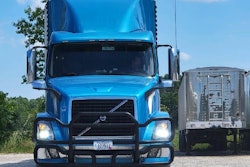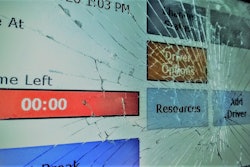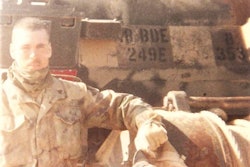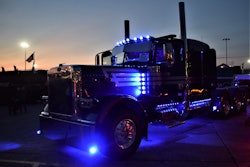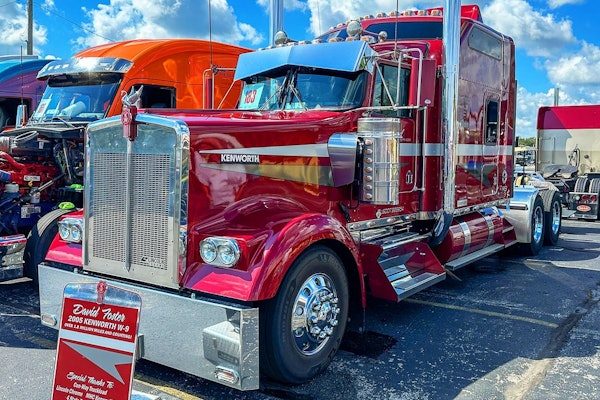I receive calls from time to time from owner-operators and small fleets with unsettling news that requires them to deal with a problem no one really wants to contend with. Two weeks ago, catching up with an owner on business progress, suddenly I hear his wife in the background exclaiming, “I can’t believe we got another overdue notice for this!”
The frustration was evident, of course, and these small fleet owners’ stress was quickly elevated by what was a distraction from so many other things needing attention on another hectic winter day spent trying to manage the small group of owner-operator contractors at the core of their business.
Trying to tread lightly, I only asked, “Are you OK?”
[Related: ‘Are you OK?’ The most important question to ask in emergency situations OTR]
The owner went on to explain that when the ELD mandate was beginning they were trying to decide on a service provider. If you were in trucking through late 2017 as a truck owner with authority, you know it was a confusing time. I observed at the time that the majority of owners who were newly required to purchase ELD services and devices -- from companies that were self-certifying their products as compliant -- wanted to simply settle for the lowest-cost system. There were literally hundreds of choices. Combine that with the stress created by having to learn a whole new way of working the hours of service, and the route to an ELD provider for a small fleet, business was probably not always navigated with consideration of all the road signs along the way, as it were.

The ramifications of decisions made more than four years ago were still nagging these owners, tasked with managing the office, receivables coming in, bill payments going out. The gentleman I was on the phone with, Bryon, told me they’d just received another notice from a collection agency to the tune of $21,000 for ELD services and equipment that they never were able to use. His small company did sign up with this particular ELD provider back in 2017, yet never received any ELD equipment for the trucks. After the initial sign-up, they waited. And waited. Forty-five days into the mandate itself, with the “soft enforcement” period nearing an end, they jumped on board with a different service provider and were off to the races.
Yet in the process of canceling the first service in early 2018, a ball was dropped on the service provider’s side. What followed: Three-plus years of overdue notices, of phone calls trying to resolve the billing issues. No one from the ELD provider could be reached to solve the problem. Collections processes were ultimately engaged, with all the potential credit rating effects that can entail.
“Say what?” I asked. I knew there had to be more to this story. My mind raced, trying to imagine what went wrong. Crucially, though, I also thought to myself, if there is one small truck owner who has this problem, there’s a good chance there are others. I began thinking about those in my personal network who might have connections to other people who may know someone who could help Bryon and his wife and business partner, Holly, solve their problem.
I sent a note and had a brief conversation with the editor of this publication, Todd Dills, offering a short explanation and suggesting other owners may have a similar problem with this particular ELD provider. I know to be most effective in a solution it is important to have firsthand knowledge of the problem, and if the next person in our network agrees to help be a part of the solution, hand the ball off and be ready to support their efforts.
It is important to not jump into problems unless invited to.
[Related: How to set up an owner-operator business to file as an S Corp and save on self-employment tax]
The good news for Bryon and Holly is that through the power of a network of contacts -- and not letting anger override possible resolutions -- within a week they were contacted by a customer service manager from the ELD provider who had the authority, and the know-how, to help. That manager had also pinpointed where the breakdown occurred on company's side of the relationship, boding well for others in the future.
Why wasn’t Bryon able to find this connection? I can only speculate at this point. With the way the ELD mandate began, with a huge influx of new companies and new customers for their services, many providers shifted operations, including customer service in some instances, to outside contractors. When billing is turned over to a collection agency, too, the original service provider may deactivate support for that customer. Two years into the mandate, then, the pandemic hit employers and staff began working remotely -- this likely did not help this situation.
It's important as an owner to recognize that no company employee is going to just accept what a customer may say. Put in place a filing system to save the documents. If you are finding yourself in these types of situations and are contacting a company or someone in your network, get your information in order -- copies of communication carry greater influence than just a relayed memory of a conversation.
Three-plus years later, these owners are close to putting this problem to bed due to the simple fact that on a cold winter day on the phone, someone said something, and someone else was listening. It’s a nice way to end what has been a great year -- though not without significant challenges, I know -- for many owner-operators.
Best wishes to you all. Let’s build an even more powerful personal network in 2022.
Sincerely and respectfully, Gary Buchs

